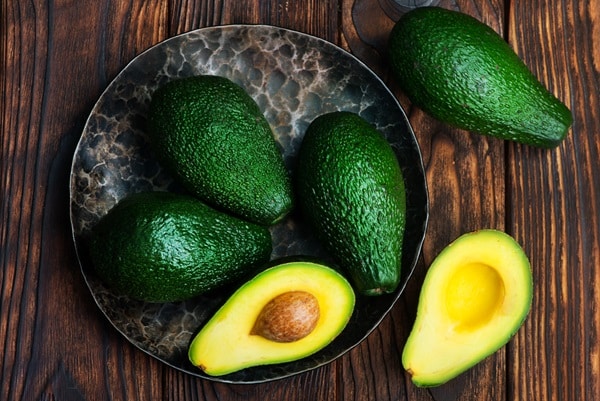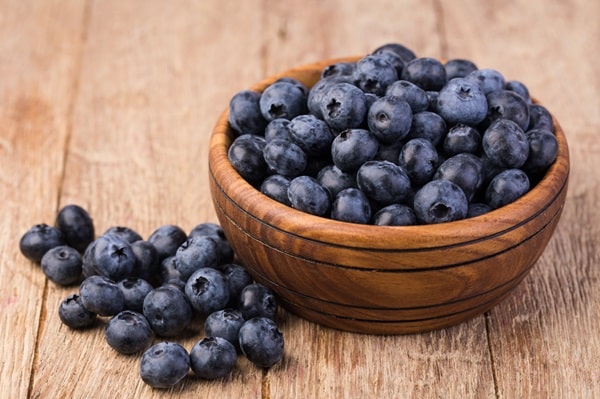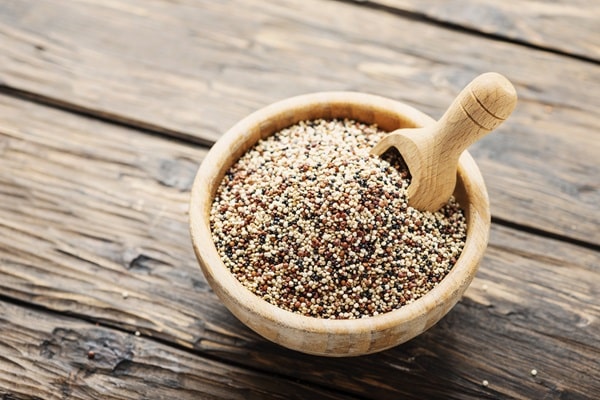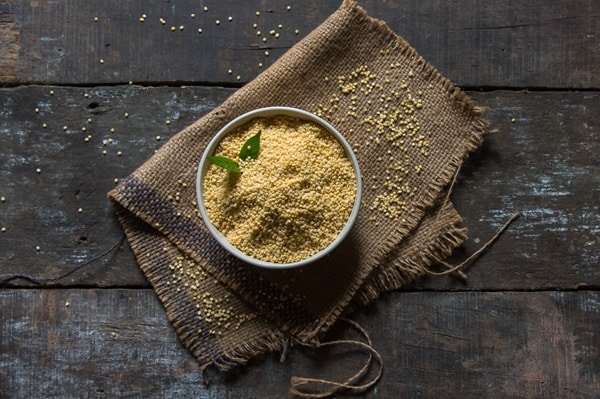In a world brimming with dietary advice and ever-changing nutrition trends, it’s crucial to focus on foods that are actually good for you. This exploration delves into specific foods known for their substantial health advantages. Each food selected is not just a fad or a temporary trend; they are staples that have stood the test of nutritional science. Understanding the benefits of these foods can transform your approach to eating, leading to a healthier lifestyle. The journey through these nutrient-rich foods begins with one of the most revered and versatile foods – avocado.
Contents
- 1 Avocados: The Powerhouse Of Healthy Fats
- 2 Blueberries: Antioxidant Superstars
- 3 Quinoa: The Complete Protein Grain
- 4 Almonds: Nutrient-Dense Snacks
- 5 Spinach: The Versatile Leafy Green
- 6 Sweet Potatoes: The Better Carb
- 7 Lentils: The Plant-Based Protein
- 8 Broccoli: The Cruciferous Champion
- 9 Discover A Healthier You With These Nutrient-Rich Foods
Avocados: The Powerhouse Of Healthy Fats

Avocados, with their creamy texture and rich flavor, are more than just a trendy food item. They are a nutritional powerhouse packed with monounsaturated fats, which are essential for heart health and maintaining good cholesterol levels. Additionally, avocados are an excellent source of fiber, contributing to digestive health, and are rich in potassium, surpassing even bananas in this regard. This unique combination of nutrients makes avocados a valuable addition to any diet, supporting overall health and well-being.
The versatility of avocados in the kitchen is another reason for their popularity. They can be used in various dishes, from classic guacamole to innovative desserts. Their creamy texture makes them a perfect substitute for less healthy fats in recipes, adding nutritional value without compromising on taste. Whether spread on toast, blended into smoothies, or used as a salad topping, avocados offer a delicious way to enhance your meals while boosting your health.
Blueberries: Antioxidant Superstars

Blueberries are celebrated for their high antioxidant content, particularly anthocyanins, which give them their distinctive color and confer numerous health benefits. These antioxidants are known for their role in reducing inflammation and protecting against chronic diseases such as heart disease and cancer. Blueberries are also a low-calorie source of vitamin C and fiber, making them an ideal snack for health-conscious individuals. Their sweet, tangy flavor and nutritional profile make them a valuable addition to any diet.
Incorporating blueberries into your diet is both easy and enjoyable. They can be eaten fresh as a snack, added to yogurt or cereal for a nutritious breakfast, or used in baking to create healthier desserts. Blueberries also retain their nutritional benefits when frozen, making them a convenient and versatile ingredient. Regular consumption of blueberries has been linked to improved brain health and better blood sugar control, making them a smart choice for maintaining overall health.
Quinoa: The Complete Protein Grain

Quinoa, often hailed as a superfood, is a unique grain that serves as a complete protein source, containing all nine essential amino acids. This makes it an excellent dietary choice, especially for vegetarians and vegans who need alternative protein sources. Quinoa is also rich in fiber, B vitamins, and various minerals, including magnesium, iron, and zinc. Its nutrient density supports various aspects of health, from digestion to energy production.
Quinoa’s adaptability in the kitchen adds to its appeal. It can be used as a base for salads, a substitute for rice in dishes, or even as a breakfast cereal alternative. Its subtle, nutty flavor complements a wide range of ingredients, making it easy to incorporate into your daily meals. Quinoa’s ability to keep you fuller for longer, combined with its nutritional profile, makes it an ideal food for weight management and overall health.
Almonds: Nutrient-Dense Snacks

Almonds are packed full of nutrition, offering a substantial amount of healthy fats, protein, and vitamin E, a potent antioxidant. These nutrients make almonds an excellent choice for heart health, as they help to maintain healthy cholesterol levels and provide anti-inflammatory benefits. Additionally, almonds are a good source of magnesium, which plays a role in over 300 biochemical reactions in the body, including blood sugar control.
The versatility of almonds in the culinary world is vast. They can be enjoyed raw or roasted as a snack, sliced and added to salads, or ground into almond flour for baking. Almonds also make a great dairy alternative when processed into almond milk. Their ability to add crunch and nutrition to various dishes makes them a valuable addition to a healthy diet. Regular consumption of almonds can aid in weight management and overall health maintenance, making them a smart choice for a nutritious snack.
Spinach: The Versatile Leafy Green

Spinach is another nutritional powerhouse renowned for its high content of vitamins A, C, and K, as well as minerals like iron and magnesium. This leafy green is also rich in antioxidants, which play a crucial role in reducing oxidative stress and combating inflammation in the body. The versatility of spinach makes it a popular choice in various cuisines, easily incorporated into both raw and cooked dishes. Its high nutrient density supports numerous health aspects, including eye health, cancer prevention, and bone health, making it a valuable addition to any diet.
Incorporating spinach into your daily meals is both simple and beneficial. It can be used as a base for salads, blended into smoothies for a nutrient boost, or added to soups and stews. Spinach can also be a great addition to omelets and quiches, providing a rich, earthy flavor and a multitude of vitamins and minerals. Regular consumption of spinach contributes to a well-rounded diet and can help in maintaining overall health and wellness.
Sweet Potatoes: The Better Carb

Sweet potatoes, with their rich orange color and sweet flavor, are not only delicious but also highly nutritious. They are an excellent source of fiber, vitamins A and C, and antioxidants, which are essential for maintaining good health. Unlike regular potatoes, sweet potatoes have a lower glycemic index, making them a better choice for blood sugar regulation. Their high fiber content also contributes to a feeling of fullness, aiding in weight management. The antioxidants in sweet potatoes, particularly beta-carotene, play a vital role in eye health and immune function.
Sweet potatoes are incredibly versatile in the kitchen. They can be baked, roasted, mashed, or used in soups and stews. Their natural sweetness makes them a great ingredient in both savory and sweet dishes, from hearty casseroles to healthy desserts. Incorporating sweet potatoes into your diet is an excellent way to enjoy a carbohydrate-rich food that is not only tasty but also packed with essential nutrients, supporting overall health and well-being.
Lentils: The Plant-Based Protein

Lentils are a staple in many vegetarian and vegan diets, known for their high protein and fiber content. They are an excellent source of plant-based protein, making them a crucial food item for those who do not consume meat. Lentils are also rich in iron, which is essential for energy production and metabolism. Their high fiber content aids in digestive health and helps in maintaining stable blood sugar levels. Additionally, lentils are a good source of folate, a vital nutrient for cell growth and function.
The culinary uses of lentils are diverse and adaptable. They can be used in soups, stews, salads, and even as a meat substitute in various dishes. Lentils absorb flavors well, making them a perfect ingredient for a range of recipes from different cuisines. Their ability to provide a feeling of satiety while being low in calories makes them an excellent choice for those looking to manage their weight. Regular consumption of lentils can contribute significantly to a balanced and nutritious diet.
Broccoli: The Cruciferous Champion

Broccoli, a member of the cruciferous vegetable family, is known for its high nutrient content, including vitamins C and K, fiber, and potent antioxidants. These nutrients contribute to its numerous health benefits, such as supporting immune function, bone health, and reducing the risk of chronic diseases like heart disease and cancer. Broccoli’s high fiber content is beneficial for digestive health, and its antioxidants play a crucial role in detoxifying the body and combating inflammation.
Incorporating broccoli into your diet is easy and beneficial. It can be enjoyed raw in salads, steamed as a side dish, or included in stir-fries and casseroles. Broccoli can also be roasted to bring out its natural sweetness and nutty flavor. Its versatility in cooking and the array of nutrients it provides make broccoli a valuable addition to any meal. Regular consumption of broccoli can aid in maintaining a healthy and balanced diet, contributing to overall wellness and disease prevention.
Discover A Healthier You With These Nutrient-Rich Foods
Incorporating these nutrient-rich foods into your daily diet can lead to significant improvements in your health and well-being. Each food discussed offers unique benefits, from heart health to improved digestion and immune support. By choosing these wholesome options, you’re not just eating; you’re nourishing your body with the best nature has to offer. Start today by adding a few of these foods to your next meal and embrace the journey towards a healthier, more vibrant you.


